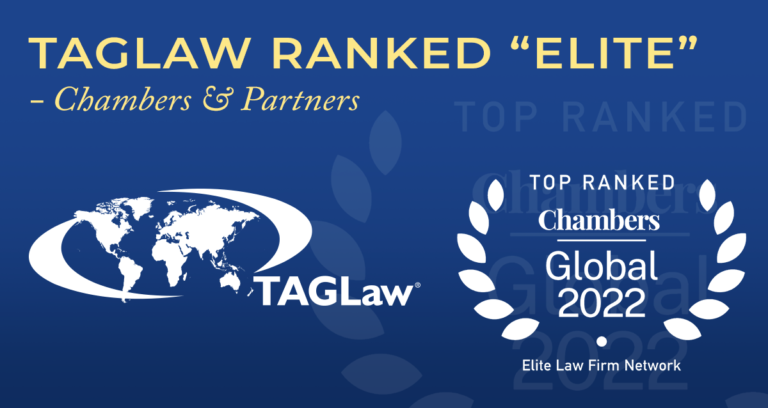The Isle of Man is a self-governing British Crown Dependency, with its own legal system, situated in the Irish Sea between the United Kingdom and Ireland, which many businesses have already chosen as the offshore financial centre in which to launch their new businesses or relocate their existing businesses to.
Not only does the Isle of Man offer a simple and advantageous tax regime (0% standard rate of corporate income tax for certain sectors; no stamp duty, dividends withholding tax, inheritance tax nor capital gains tax; and a standard rate of income tax for employees of 10%, capped at 20%); the Island is also renowned for its world class professional services, economic stability, low crime rates, public/private sector liaison and a proactive government which promotes and supports moves to the Island.
Company structures in the Isle of Man
Dependent on the needs of the business concerned and the capability of the shareholders and directors, a company could either be incorporated under the Companies Acts 1931-2004 (“1931 Act Company”) or the Companies Act 2006 (“2006 Act Company”).
Under both structures, neither the shareholders nor the directors need to be resident or physically present in the Isle of Man, and thus a company could be incorporated and managed in the Isle of Man by persons not residing in the Isle of Man. It is however a requirement to have a registered office in the Isle of Man, which could be provided by a registered corporate service provider if the business does not have a premises from which it operates in the Isle of Man.
Some of the key differences to consider when deciding which structure to establish are as follows:
| 1931 Act Company | 2006 Act Company |
| At least two directors are required, both of which are natural persons (corporate directors are not allowed) | Only one director is required, this can be a corporate director |
| Must have a company secretary (not required to be resident in the Isle of Man) | No company secretary required |
| Must have an authorised share capital and any increase will need to be approved by special resolution at a general meeting of the members, also approving the requisite changes to the memorandum and articles of association of the company | No authorised share capital and the creation and cancellation of shares can generally be authorised by a board resolution |
| Distinction between special and ordinary resolutions, requiring 75% and 50% majority respectively | No distinction between special and ordinary resolutions, decisions can be made by a simple majority unless specified in the memorandum and articles of association |
| Registered agent not required | Must have a registered agent (holding a class 4 licence to provide corporate services issued by the Financial Services Authority, which is the local regulator) |
| Stringent filing requirements, including annual return, registers of directors and members and any changes thereto and meetings of directors and members | Less stringent filing requirements, required to file an annual return |
Which Act a company is incorporated under will be entirely dependent on the nature of the business and the availability/capacities of the directors and members. Whilst a 2006 Act Company is more flexible, with less rigorous procedures, a registered agent is mandatory and will charge a fee for the services it provides. This may however be beneficial for persons who are not resident in the Isle of Man and would prefer the administrative procedures to be carried out routinely by another entity, which could also provide a registered office and directors. Smaller businesses with members and/or directors who are local, for instance, may however prefer a 1931 Act Company which they could administer themselves.
Economic substance
It should be noted, in respect of both 1931 Act Companies and 2006 Act Companies, that where a company which generates income falls within a ‘Relevant Sector’ as contemplated in Part 6A, sections 80B to 80N of the Income Tax Act 1970, then irrespective of where that company is managed and/or controlled, the company may be required to have ‘real economic substance’ in the Isle of Man in order to avoid financial penalties and ultimately being struck off the Companies Register.
The Relevant Sectors include but are not limited to businesses in banking, insurance, shipping, headquartering, operating a holding company and holding intangible property. In order for a company in a Relevant Sector to show that it has adequate substance, it will be necessary to ensure that the company:
- is managed and directed in the Isle of Man (this could be achieved with the assistance of a registered agent, however, a quorate board of directors will be required to physically meet in the Isle of Man when making certain management decisions);
- has an adequate number of qualified employees in the Isle of Man (regardless of the length of employment and whether or not legally employed by the company);
- has adequate operating expenditure proportionate to the level of activity carried out on the Isle of Man (this will be subjective and should cover cots of employees, property etc.);
- has an adequate physical presence in the Isle of Man (a registered office and registered agent may be sufficient in certain circumstances to satisfy this requirement); and
- conducts its core income generating activities in the Isle of Man (this will be dependent on the type of business).
If you are considering establishing a company in the Isle of Man and need further guidance or detailed advice on the above contact Rachel Winterbach or Adam Killip.
Download a PDF version of this article here
Disclaimer
The information and/or opinions contained in this article is necessarily brief and general in nature and does not constitute legal or taxation advice. Appropriate legal or other professional advice should be sought for any specific matter. Any reliance on such information and/or opinions is therefore solely at the user’s own risk and DQ Advocates Limited (and its associates and subsidiaries) is not responsible for, and does not accept any responsibility or liability in connection with any action taken or reliance placed upon such content.







